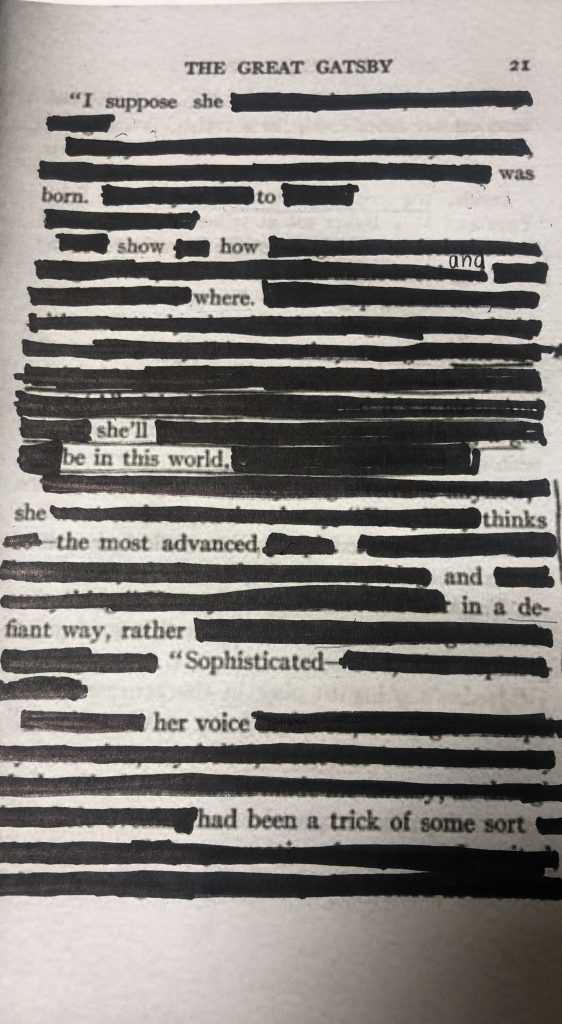
Hi guys! I just want to start and say thank you to those who read my found poem, especially to those who took time to comment! I really did enjoy this assignment.
I choose this page out of The Great Gatsby, written by F. Scott Fitzgerald, to do my found poem on. If you’re familiar with the novel, you are aware of Daisy Buchanan’s hopes for her daughter. In her conversation with her cousin, Nick, she states, “I hope she’ll be a fool – that’s the best thing a girl can be in this world, a beautiful little fool” (21). I personally believe that women are born to be so much more than this. Daisy believes that ignorance is bliss; she wants her daughter to grow up in a perfect world, unaware of the hardships she is facing in society. However, with this attitude, Daisy is prohibiting her daughter from becoming a stronger woman in society. In order to overcome boundaries, we must not be ignorant to the issues and hardships around us. The original page is rather degrading to women, boiling them down to be “beautiful little fool[s]” (21). The world has changed since this novel was written (based in the 1920s), and for the better. Slowly but surely, womens’ voices are gaining more power in society.
I wanted to embrace the idea of Daisy’s daughter being empowered and defying societal odds, rather than just being a beautiful toy in soicety. I focused on turning this page around, and enjoyed doing so. This poem is created to give Daisy’s daughter a powerful voice. I believe that women are born in this world to be powerful and force a greater change in society, which is why I focus on how she will show the world this success. Women are advancing in society, thus gaining a voice and defying odds. The line, “Her voice had been a trick of some sort,” portrays the idea that the daughter is ‘tricking’ this ancient idea that men have the upper hand in society. Her voice is acting as a trick because she is able to speak and gain a sense of self in this world. I tried to create a poem that was the exact opposite of the original passage in order to juxtapose these two ideas of how women are portrayed in society.
